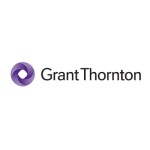In our previous article we commented on the benefits and limitations of joining a newly acquired company in fiscal unity with its holding company. Following this, we will discuss the current European developments regarding holding companies.
In December 2021, the European Commission introduced the ATAD 3 proposal which targets shell companies within the EU. The Directive is part of the general European tax development aimed to encourage operational activities and discourage the use of artificial structures.
The Directive focuses on ‘risk’ entities with limited substance, and it could result in the denial of tax benefits and the obligation to declare in the tax return whether certain substance requirements are met as of January 1 2024.
ATAD 3 may have certain retroactive effect, as the assessment moment of the facts and substances may be two years prior to the effective date.
The ‘risk’ company
To ensure that ATAD 3 is not applicable to operational holding companies and only covers empty holdings in international structures, certain companies are exempt. These companies in principle include holding companies:
With five or more employees;
Owned by listed groups;
Owned by EU-regulated companies;
With shareholders situated in the same country; and
In purely domestic situations.
As such, ATAD 3 would apply to holding companies incorporated (by a foreign shareholder) to acquire foreign subsidiaries, and should generally not apply to a holding company with an operational subsidiary in the same state.
Companies that are not exempt from ATAD 3 are then qualified as a ‘risk’ company if:
More than 75% of the company’s revenue consisted of passive or mobile income in the previous two years;
At least 60% of its activities are cross-border; and
Its corporate management and administration services on significant functions have been done by a third party in the previous two years.
Once qualified as a ‘risk’ company, the company must report whether it meets the minimum substance requirements in its annual tax return. The minimum substance criteria are comparable to the Dutch minimal substance requirements and refer to an EU bank account, local resident(s) as director(s), and whether the company has an office space.
Consequences for ‘risk’ companies
If the ‘risk’ company does not meet the minimum substance criteria, access to the Parent-Subsidiary and Interest and Royalties Directives will be denied. Additionally, the holding may no longer be able to obtain a certificate of residence, or it may be provided with a certificate that includes the warning that it lacks substance. This in turn could impact the company’s access to tax treaty benefits.
The Directive is in principle only applicable to EU member states, but it includes rules to be applied by member states in structures that include third countries. These rules state that the EU shareholder should include the payments received by the shell company, or that the outbound payment should be included in the EU source state.
However, even if the company does not meet these minimum substance criteria, there are two escapes available that can provide security for up to six years.
The first escape is to rebut and provide substantiation on the company’s existence and substance. The second escape is to motivate the lack of tax motives by substantiating that the tax liability is not lower with the holding in the group.
An example
We will now discuss an example in which a Dutch holding is used to acquire a foreign target company.
In this example, the holding would in principle fall under the scope of ATAD 3. However, there are various steps that could prevent the application of ATAD 3. These mainly consist of reinforcing the holding’s presence and independency in the Netherlands, and / or substantiating its non-tax-driven role within the group. Collaboration in activities between the holding and its subsidiaries may then provide opportunities.
Examples of options that could be considered are:
1. Using a Dutch holding, if there is also a Dutch operational company whose activities can be combined with those of the holding by way of a merger or fiscal unity;
2. Having the holding perform active management or financing functions within the group; or
3. Using an operational subsidiary to acquire the foreign target company.
The impact of ATAD 3 on acquisition structures in the Netherlands
Since Dutch tax law already includes minimum substance requirements to target artificial structures, we do not expect that the addition of ATAD 3 will lead to a substantially different approach for Dutch holding structures. Nevertheless, ATAD 3 has more severe consequences for non-compliance than the current rules.
However, as no implementation legislation has been published so far, this currently leaves room for uncertainty as how to structure acquisition holdings in the Netherlands and other EU countries.
As ATAD 3 basically encourages that holding companies are used in the same country where operational activities are carried out, or at least where substantial activity takes place and value is created, this should leave sufficient room to keep using acquisition holding structures in the Netherlands.
Jurgen van Hattum
Partner, Grant Thornton
E: jurgen.van.hattum@nl.gt.com
Sofie Verheij
Junior manager, Grant Thornton













